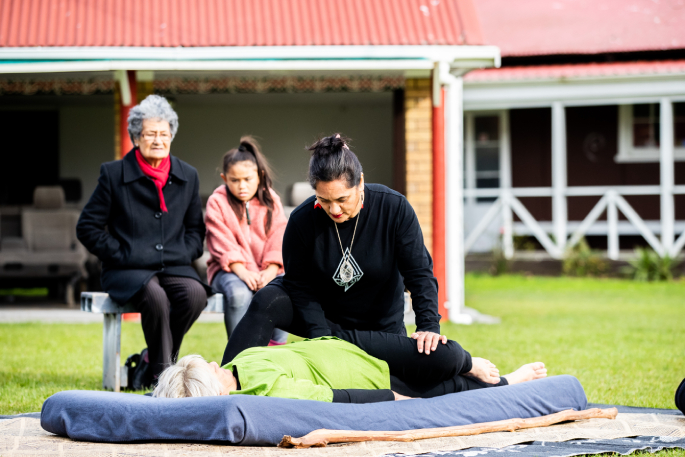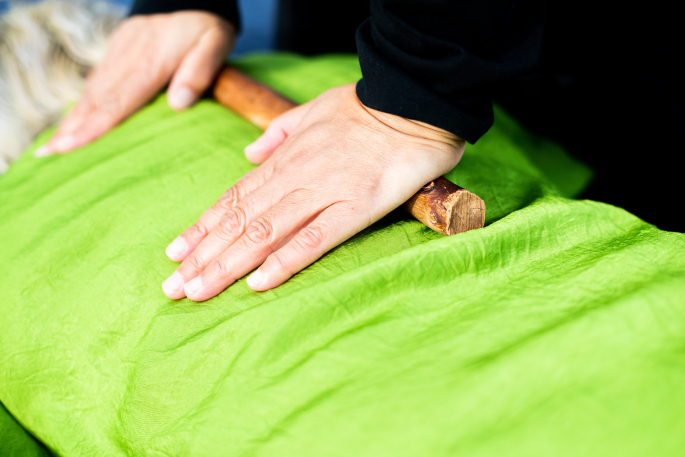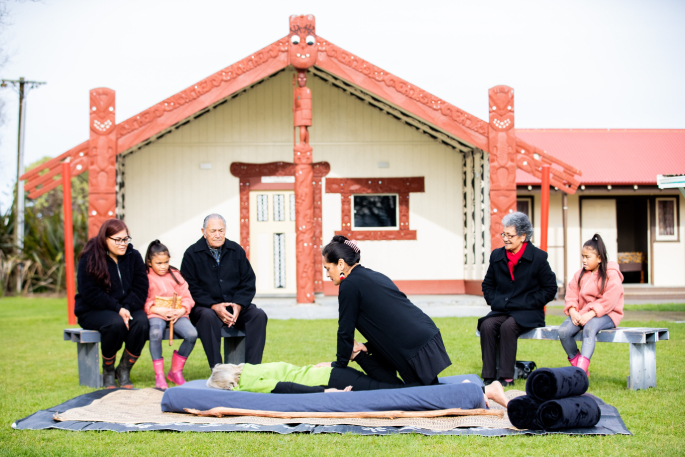This month marks the three-year anniversary of ACC offering rongoā Māori as an option in people's recovery and the growth in that time has been significant.
Rongoā Māori has been offered by ACC since June 2020.
As of May 2023, ACC had partnered with 152 rongoā practitioners (from Kaitaia to Stewart Island) to deliver over 37,800 rongoā sessions for 5,157 kiritaki (clients).
Data from the Crown entity shows that rongoā Māori claim volumes have doubled since the same time last year – there were more than 22,000 rongoā sessions delivered in the 12 months to May 2023.
Over the same period, the number of rongoā providers around Aotearoa has increased by 40 per cent.
 Rongoā Māori is traditional Māori healing. It includes mirimiri and romiromi (bodywork), whitiwhiti kōrero (support and advice) and karakia (prayer). Photo: ACC.
Rongoā Māori is traditional Māori healing. It includes mirimiri and romiromi (bodywork), whitiwhiti kōrero (support and advice) and karakia (prayer). Photo: ACC.
Eldon Paea, the manager of Māori Health at ACC, says the numbers show rongoā Māori is making a difference.
'We recognise we need to offer a choice of support services that reflect tikanga Māori (Māori customs) and te ao Māori (the Māori worldview) to uphold our responsibilities to Māori under Te Tiriti o Waitangi,” says Eldon.
'We want to bring more Māori to ACC to support better health outcomes; partnering with rongoā Māori practitioners who are connected in their hapori (communities) is helping us to do this.”
Rongoā Māori is traditional Māori healing. It includes mirimiri and romiromi (bodywork), whitiwhiti kōrero (support and advice) and karakia (prayer).
Offering rongoā as a rehabilitation service is part of ACC's continuing efforts to deliver equity for Māori.
 Around one third of people accessing rongoā care are survivors of sexual violence. Photo: ACC.
Around one third of people accessing rongoā care are survivors of sexual violence. Photo: ACC.
In 2015, Māori were 25 per cent less likely to make a claim than non-Māori.
This is improving, with current data reflecting Māori are now 18 percent less likely to claim.
'We are excited to see this significant growth in rongoā Māori claims. It presents injured Māori, and all New Zealanders, with more choice in their recovery options, and is a positive step towards delivering equity for tangata whenua.”
Rongoā Māori sessions are meeting an increasingly wide range of injury needs.
The most common injuries rongoā is used to support are sprains and strains. Around one third of people accessing rongoā care are survivors of sexual violence.
While rongoā is available to clients throughout the motu (country), Waikato is the largest source of claims (2074), followed by Bay of Plenty (588), Gisborne (532) and Auckland (516).
There has been a significant uptake of rongoā services in Southland over the past year with more than 70 clients taking up the service, an increase of 636 per cent.
The data shows there's also been an increase in uptake in the big cities. There has been significant growth in the urban regions of Auckland (153 per cent), Wellington (203 per cent), Canterbury (192 per cent), Otago (125 per cent).
And it is not just for Māori. Non-Māori now account for 40 per cent of all ACC rongoā Māori claims.
The growth of rongoā Māori
· ACC data shows that rongoā Māori claim volumes have doubled since the same time last year – there were more than 22,000 rongoā sessions delivered in the 12 months to May 2023.
· Over the same period, the number of rongoā providers around Aotearoa has increased by 40 per cent to 152 rongoā practitioners (from Kaitaia to Stewart Island).
· In 2015, Māori were 25 per cent less likely to make an ACC claim than non-Māori. This is improving, with current data reflecting Māori are now 18 per cent less likely to claim.



1 comment
Levelled the playing field
Posted on 08-07-2023 18:59 | By Johnney
ACC recognise Chiropractors as Quacks and won’t support them though they provide excellent drug free treatment that actually works. Also sexual abuse should fall under mental health and counselling, not ACC. Levies are funded by the workforce paying taxes, mainly for workplace injuries.
Leave a Comment
You must be logged in to make a comment.